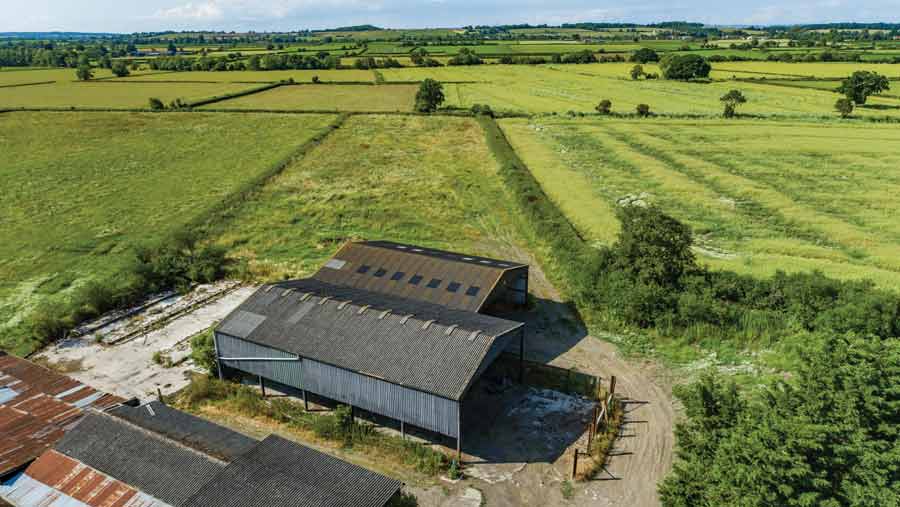Business Clinic: Should we sell land by auction?
 © Carter Jonas
© Carter Jonas Whether it’s a legal, tax, insurance, management or land issue, Farmers Weekly’s Business Clinic experts can help. Here Jack Mitchell, partner, Carter Jonas, offers advice on methods of land sales.
See also: Business Clinic: Is our orchard liable for business rates?
Q: We’re planning on putting land on the market, but we’re not sure what method to use – private treaty or auction. Which would you advise?
A: Although a sale by private treaty is a more well-trodden path, an auction sale is sometimes exactly what’s needed to achieve the best possible price – providing it is suitable for your asset.
Residential properties aren’t necessarily right for auction because a high percentage of the potential purchasers require a mortgage, so they would need to pay for a mortgage valuation prior to the auction.
That outlay without the certainty of being the successful bidder is a deterrent.
However, lots of land or sites for development typically suit the auction process well, as it can provide a certainty often lacking from sales by private treaty or by tender.
One of the main factors to consider when assessing methods of sale is the flexibility of private treaty.
For example, is the land suited to sell as a whole, or would best value be achieved by dividing it into lots to generate competition between purchasers, as well as those looking to acquire the whole?
Also, do you need flexibility during marketing to discuss the sale of smaller areas of land to potential special purchasers, such as adjoining owners of residential property who may be prepared to pay a premium for up to, say, an acre?
Another important factor is timing. If you need to realise the funds by a certain time, a sale by auction may be more appropriate because of the greater degree of certainty and the time it can take for a private treaty sale to complete.
What sells well at auction?
Buyers looking for land or sites for development are usually purchasing with cash or commercial finance, which is more flexible.
Buying at auction suits developers because it gives them the certainty of knowing their completion timing.
These types of buyers typically have multiple assets and potentially development finance, which they may have spread across several sites at varying stages of completion.
The same is often true of farming businesses and perhaps other commercial entities, such as large-scale environmental buyers.
They normally have commercial finance available, often secured against other property, or cash, so funding an auction purchase with completion say four weeks from the auction date is not an issue.
The high-adrenaline nature of an auction sale isn’t for everyone, but many farmers prefer it, as they are familiar with the process having used it frequently for buying livestock and machinery.
Some farming businesses are less comfortable bidding for land by private treaty or tender than by auction, because auctions offer far greater transparency.
This can be an advantage when there is strong competition, but less so when there is not.
Auctions also suit run-down properties that would struggle to secure a mortgage.
Advantages of auctions
The key advantage of an auction is the certainty it offers. You exchange contracts on the fall of the hammer that same day, and normally completion takes place four to six weeks later.
It provides the certainty of a legally binding transaction between purchaser and vendor on the day of the auction with a set date for completion.
The buyer benefits from the transparency of the auction, with the opportunity to view the information pack and know what they’re getting right from the outset.
Guide prices are also often exceeded at auction, where bidding can become competitive.
If you’re considering putting land with agricultural buildings up for auction, seeking Class Q approval prior to listing could prove advantageous and provide significant incentive for buyers hoping to create a residence using permitted development rights.
These allow certain works and changes of use to be carried out without planning permission.
I recently sold at online auction some farm buildings for redevelopment near Yeovil.
The 2.8-acre site had a modern farm building with permission for conversion to a residential property and a guide price of £225,000, but ended up selling for £305,000 in September.
Making sure the right method of sale is selected is essential, especially at a time when interest rates are high; higher borrowing costs focus minds on how hard capital is working.
Do you have a question for the panel?
Outline your legal, tax, finance, insurance or farm management question in no more than 350 words and Farmers Weekly will put it to a member of the panel. Please give as much information as possible.
Email your question to FW-Businessclinic@markallengroup.com using the subject line “Business Clinic”.
